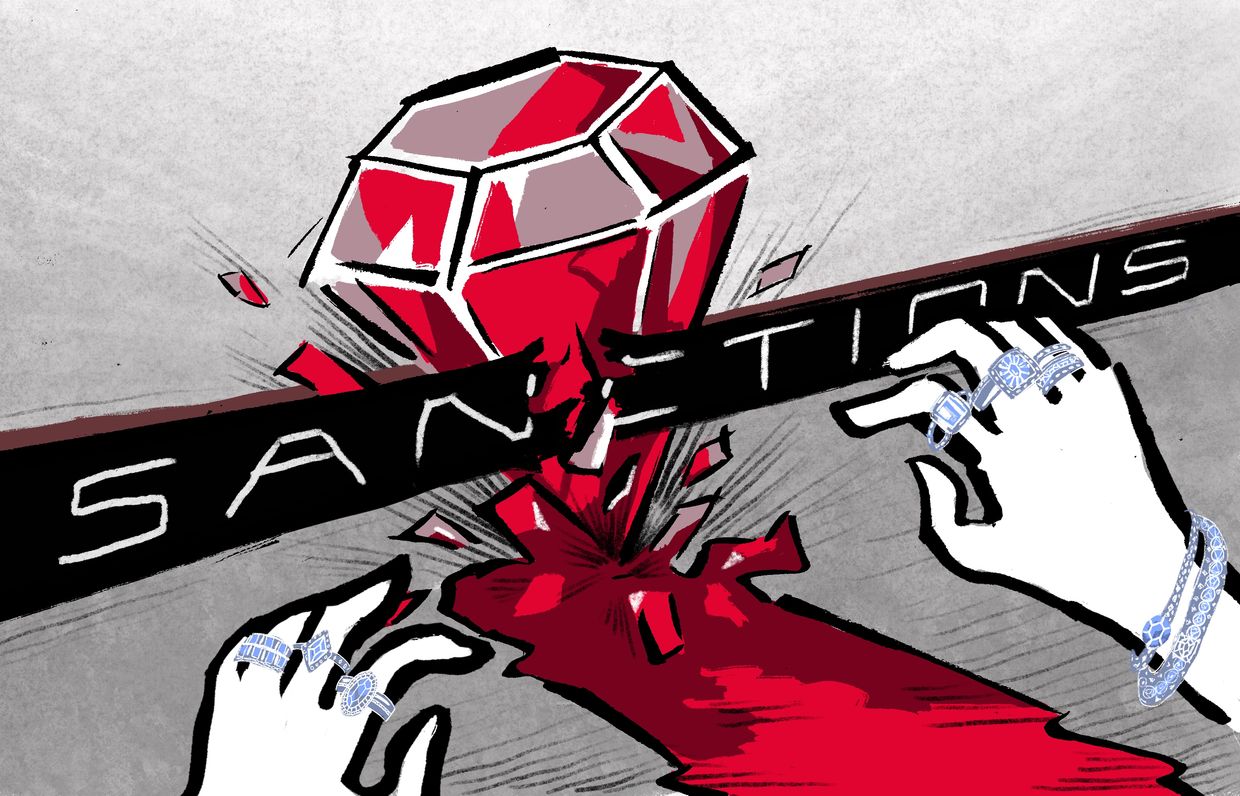Bloomberg: EU's 12th sanctions package on Russia could target $5.3 billion in trade

The European Union is discussing the adoption of a 12th round of sanctions against Russia, which would target $5.3 billion in trade, Bloomberg reported on Oct. 31.
The new package would include export restrictions on "welding machines, chemicals and further technologies used for military purpose."
In addition, "software license bans and restrictions on imports of a small number of processed metals and aluminum products, construction items, transportation-related goods and diamonds" were also being considered.
One of the primary aims of the proposed package would be to target Russia's ability to circumvent existing sanctions by doing business through third-party countries.
Despite a ban on their export to Russia, Western-made technology has continued to be used in the production of Russian military equipment, often arriving in Russian or Iranian factories through neighboring countries like Kyrgyzstan or Turkey.
It also will attempt to tackle enforcement gaps relating to the illegal transit of Russian oil. Currently, there is a $60-per-barrel price cap set on the trade of Russian oil, but there are also ways to bypass this.
Russia has used a "shadow fleet of hundreds of vessels to move the shipments." The U.S. Treasury Department has imposed targeted sanctions on companies caught violating this price cap, but the proposed sanctions package illustrates that there is more work to be done.
In total, the proposed package would add more than 100 individuals and almost 50 entities to the sanctions list.
The previous round of EU sanctions was announced in June 2023 and also sought to target the bypassing of existing sanctions. In particular, it focused on increasing restrictions on the transit of goods that may be used by Russia's military-industrial complex, particularly on dual-use goods and technologies.
Sanctions packages require a unanimous vote by EU member states in order to pass.
Hungarian Foreign Minister Peter Szijjarto said on Oct. 28 that Hungary would veto any future sanctions packages if it included the gas, oil, and nuclear energy sectors of the Russian economy.
It has made similar threats in the past but eventually voted for all eleven of the previous sanctions packages, typically after extracting some concessions or exceptions.












